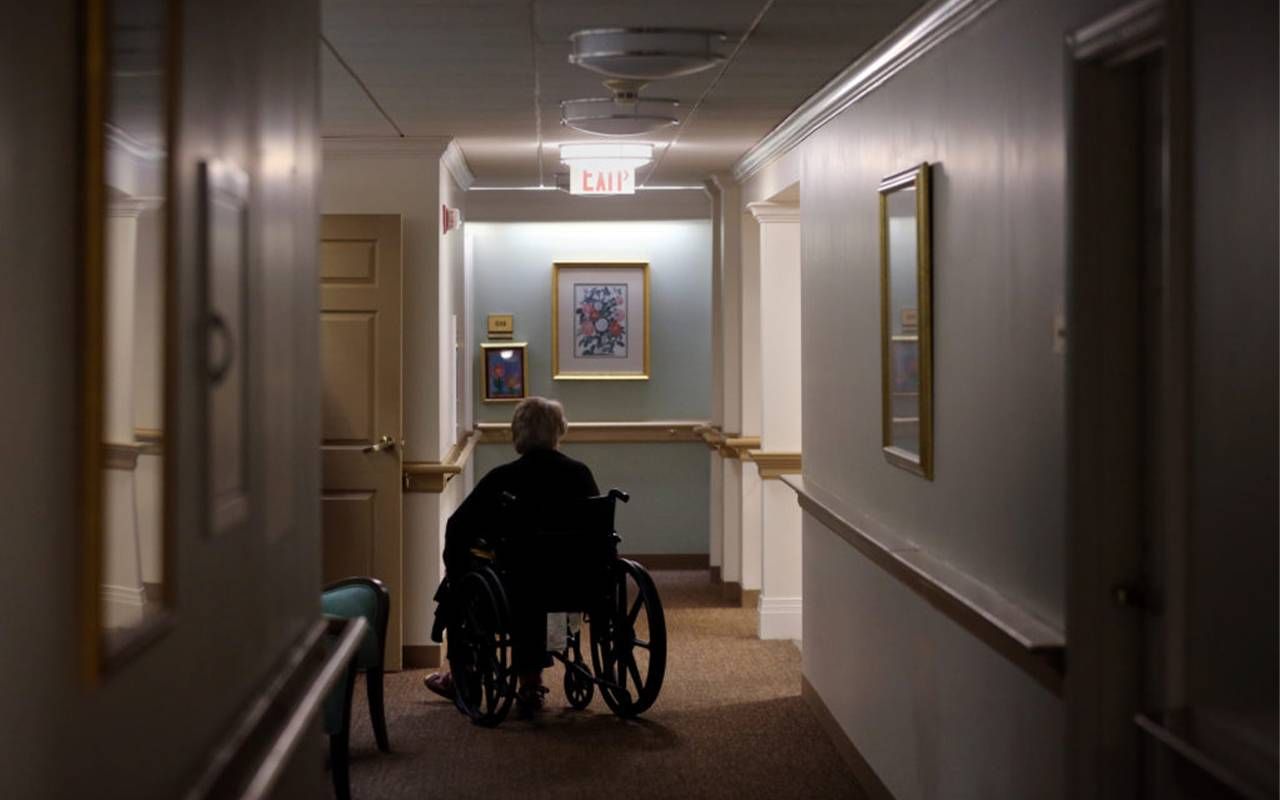Sexual Expression and Older Adults
Putting your wishes in your health care power of attorney may forestall a fight over intimate relations in nursing homes or other institutions
Life can be defined by how we love and are loved. Essential to this concept is sexual expression, one of our most basic needs. A 2018 National Poll on Healthy Aging revealed that almost 40% of those surveyed who were between the ages of 65 and 80 confirmed they were sexually active, and 75% felt that sex was an important part of a romantic relationship at any age.

Even though we are remaining sexually active well into our 70s and 80s, societal taboos and ageist myths continue to promote the notion that those over 65 are asexual.
The health benefits for those who remain sexually active as they age, including lower blood pressure, better healing, less stress and depression, and a longer lifespan, are often overlooked. To promote healthy aging, sexual expression can no longer be a taboo topic, especially in the nursing home industry.
Sexual Expression in the Nursing Home
What happens to sexual expression when a spouse or partner moves to a nursing home? Do you lose the right to crawl into bed with your partner to provide comfort, reassurance or more?
Federal law provides nursing home residents many rights, including the right to privacy, the right to have visitors and meet them privately, and the right to be treated with dignity. Together, these rights can provide legal protection for the nursing home resident who wishes to engage in intimate or sexual activity, if such actions are not public, are consensual and do not harm the resident or others.
"How can I meet the sexual and intimate needs of the resident with an acceptable level of risk?"
Despite the right to sexual expression, when a nursing home resident participates in sexual activity, staff often interpret such activity as a behavioral problem. This becomes even more controversial when a resident is diagnosed with dementia.
Maggie Syme, a clinical psychologist and director of the Family Caregiver Wellness Program at Hebrew SeniorLife in Boston, explains that dementia does not eliminate the desire for intimacy, nor does it mean that you lack capacity to consent to any sexual expression.
Sexual expression is a continuum of activities, including hand holding, cuddling, kissing, masturbation, outercourse and intercourse. For Syme, the question is not "do you have the capacity to consent to sexual activity," but rather "[how] can I meet the sexual and intimate needs of the resident with an acceptable level of risk?"
Person-Centered Care: Managing Risk
A new buzzword in health care is "person-centered care," which requires institutional staff members and the resident's family to see people as living with dementia, rather than suffering from dementia. This phrasing reminds staff and family that the resident is a person who has needs and wishes.
According to Syme, for care to be person-centered, the nursing home must examine "who is the person in front of me, what are their needs, how can we meet them in both a mitigating risk sense, but also support the person and their needs. . . ."
Low-Risk Sexual Expression
Low risk sexual activities are more likely to be supported by nursing homes.
Consider Zeke, a resident living with dementia who removes his clothing in the dining room and touches himself. Zeke becomes combative when staff try to put his clothing back on and redirect him. Instead of labeling Zeke's behavior as problematic and medicating him, the nursing home digs deeper into Zeke's behavior.
Syme recommends that nursing homes take the initiative and develop sexual expression policies that address the intimacy needs of residents who are higher risk due to their impaired mental capacity.
After speaking with family, the staff find that Zeke had lived alone, and was used to pleasuring himself, while looking at adult magazines. Providing Zeke with private time in his room with a few adult magazines to engage in low-risk solo sexual activities results in Zeke showing less anxiety and more appropriate public behavior.
High-Risk Sexual Expression
Syme recommends that nursing homes take the initiative and develop sexual expression policies that address the intimacy needs of residents who are higher risk due to their impaired mental capacity. She encourages nursing homes to train a team of staff members to assess these situations and find ways to safely support residents in various levels of sexual expression.
Rose is an example of a nursing home resident with moderate dementia. She cannot balance a checkbook, bathe or dress without supervision, and does not know what year it is. Some days Rose leans against her husband and asks him "to play" with her, and other days she pulls away, accusing him of cheating on her.
Talk With Residents
In a person-centered facility, an assessment team interviews Rose and her husband about their relationship and any concerns they have about sexual contact. This information is used to create a plan to provide privacy and support to the couple, so they can be intimate when Rose initiates such activity.
The riskiest situation involves Helen, another nursing home resident. Helen frequently crawls into bed with the male resident across the hall, calling him by her husband's name, and engaging him in sexual activity. The team will have to determine how much each resident values the intimacy and how accepting Helen's spouse and the other resident's family is of this new relationship.
The team notices that both residents are happier and more cooperative with staff after sleeping together. If both families accept this relationship, there is less risk of sanctions by state surveyors for sexual exploitation or a lawsuit by family members. This makes it more likely the nursing home will support the relationship.
Take the Initiative
Nursing homes are highly regulated. They are also confronted with staffing and budget shortages. As a result, most facilities fall short in supporting the adoption of sexual-expression policies, according to Syme.
While you are competent, you can attempt to protect your wishes regarding sexual expression by documenting them in an advance directive.
All 50 states recognize Healthcare Powers of Attorney as advance directives that allow you to appoint someone to make health care and end-of-life care choices on your behalf if you become incapacitated. This document can also include your wishes regarding sexual expression.
Sample Sexual Expression Provisions
Most Healthcare Powers of Attorney have space for "Additional Instructions." The following is an example of how you can include instructions regarding sexual expression in your document.
Additional Instructions
______ By placing my initials or mark on this line, I specifically authorize my decision-maker to:
- Discuss my history of sexual expression with health care professionals in any facility in which I reside to determine what accommodations are required to allow me to safely engage in the sexual activities I authorize below.
- Consent on my behalf to kissing, touching and vaginal intercourse with my spouse or partner, even if I no longer recognize him.
- Consent on my behalf to kissing, touching and vaginal intercourse with a person who is not my spouse or partner.
To include intimacy as part of a healthy aging program for its residents, a nursing home must create person-centered policies that support its residents' needs for sexual expression, while keeping the residents safe. Including sexual expression instructions in your Healthcare Power of Attorney minimizes the legal risk for nursing homes that do create sexual expression policies.


